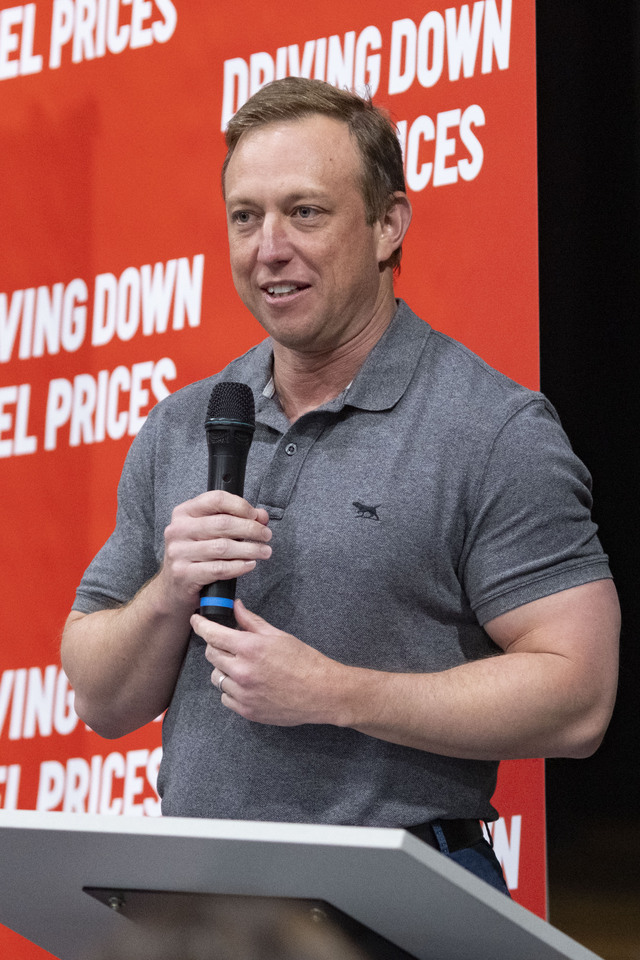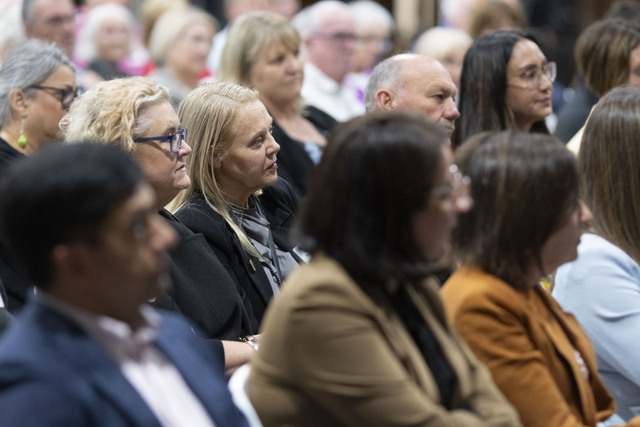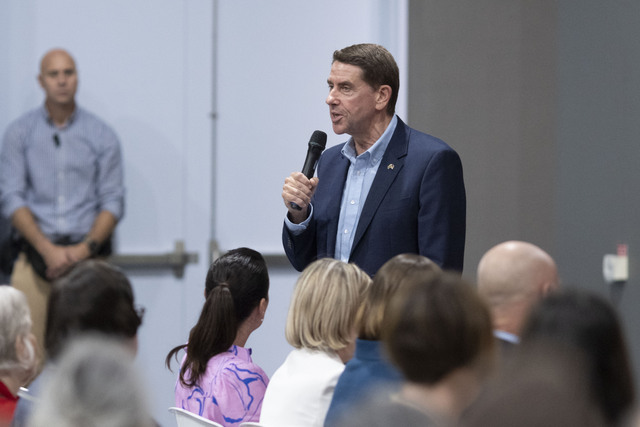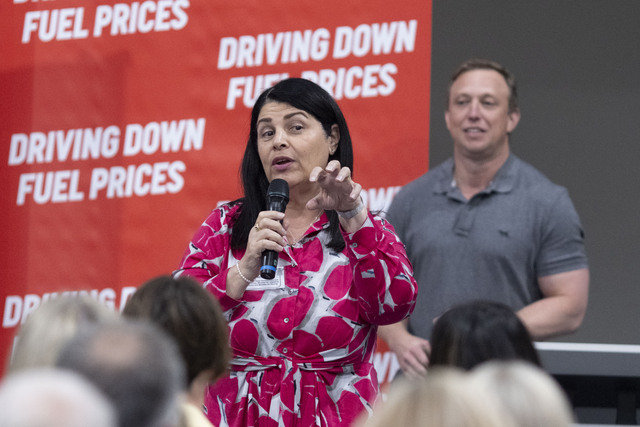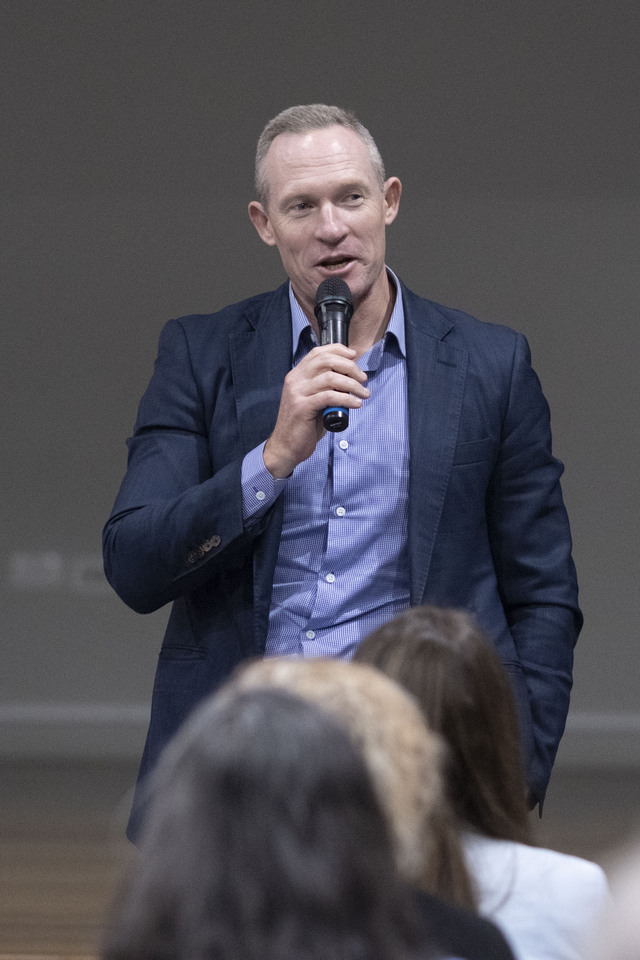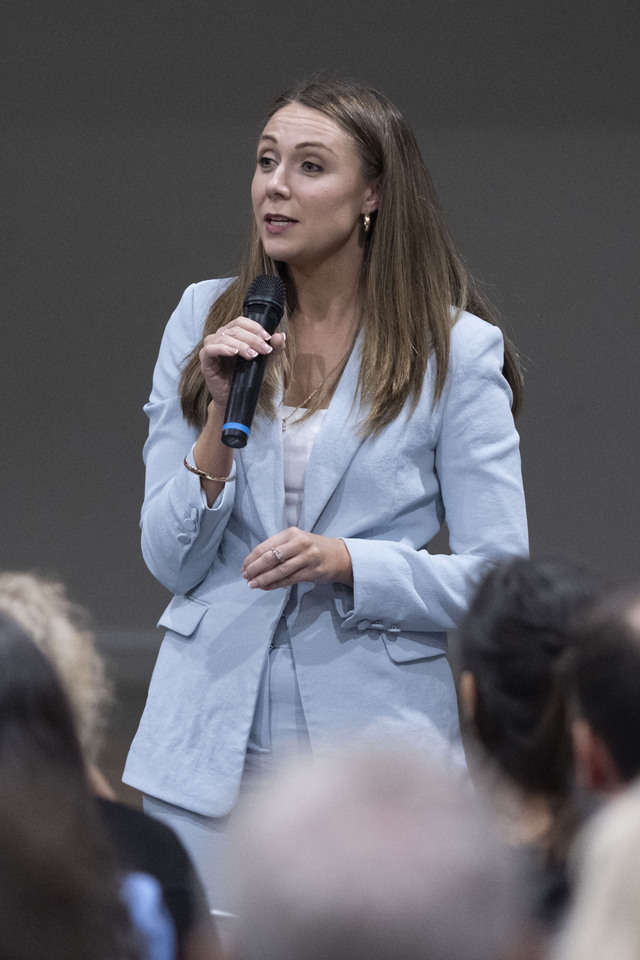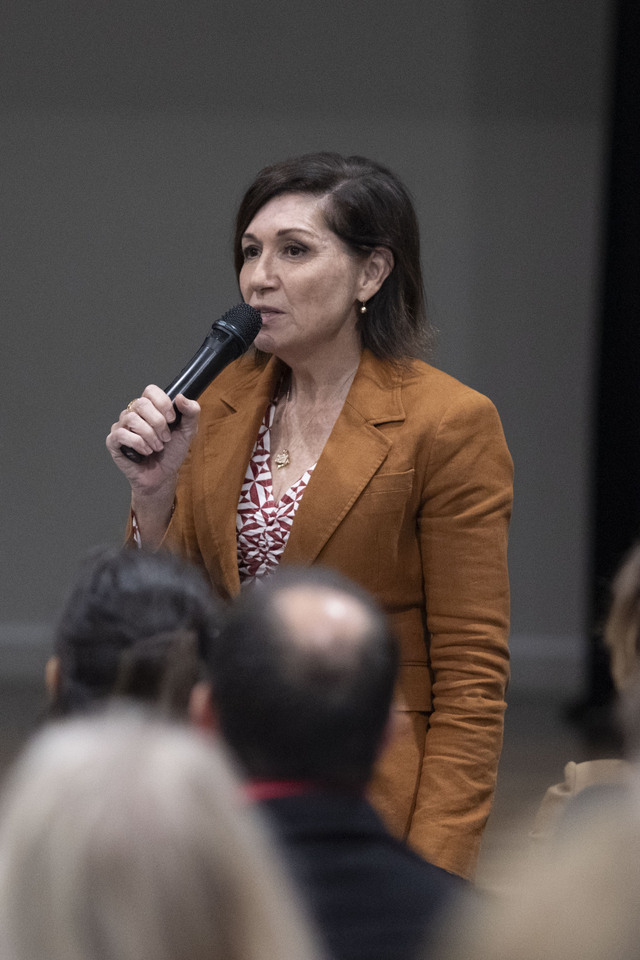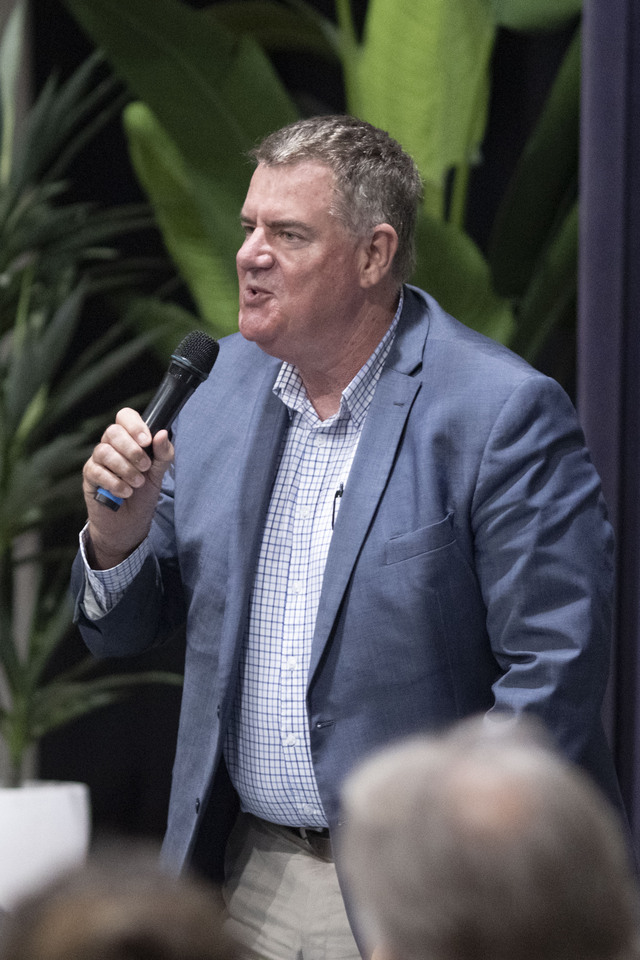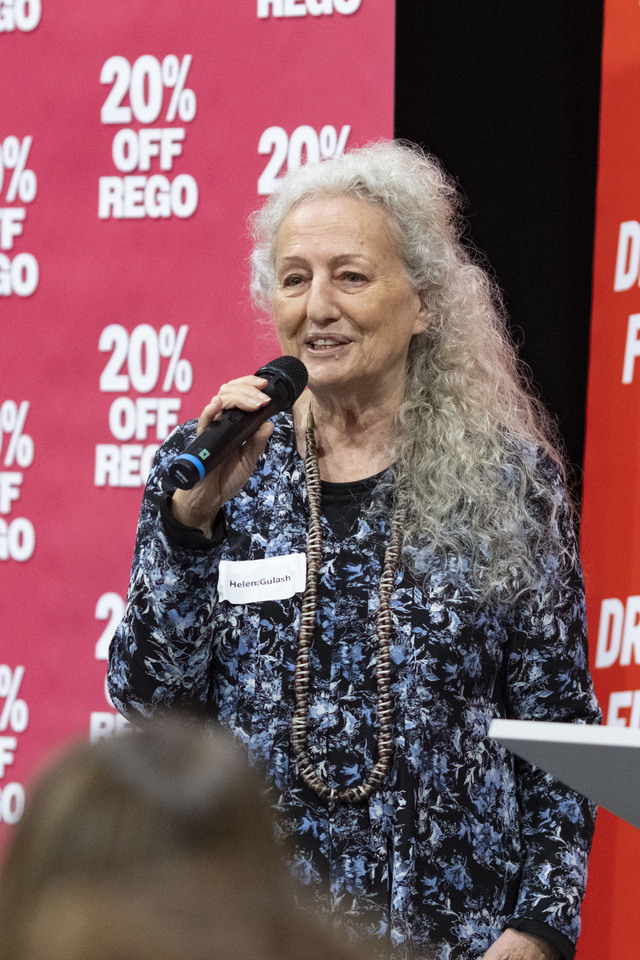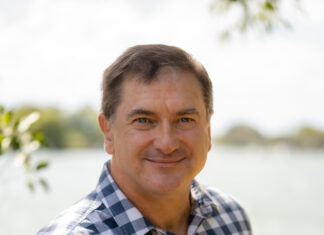Cost of living is the biggest challenge across the state, Premier Steven Miles told guests at a Community Cabinet town hall style meeting in Caloundra last week, one of six community cabinets held this year across the state.
“That’s what led us to allocate all coal royalties to cost of living initiatives,“ he said.
The initiates include $3.5billion in energy bill rebates, a six-month 50 cents fare trial on public transport and fuel price initiatives to increase competition, limit the number of times fuel prices can be raised to once a day and the amount it can go up to five cents a litre.
Dr Miles said there was no good reason for fuel price fluctuations.
It doesn’t reflect global oil prices, it’s unique to the Queensland cycle and a result of not enough competition and independent retailers, he said.
Ministers held a cabinet meeting, listened to delegations, heard from Sunshine Coast Mayor Rosanna Natoli about the region’s objectives and took questions from the community at the town hall meeting held at Baringa State School.
Here are some of those questions and answers.
The first question was whether the fast growing region was getting its fair share of government money.
Deputy Premier and Treasurer Cameron Dick replied, acknowledging the region was the growth centre of Australia, saying the government was trying to respond to make sure this community gets its fair share.
We are making available in the budget $1.8b for the Sunshine Coast hospital and health, $1.3b infrastructure and our signature project $2.5b on a direct rail line, he said. Mr Dick said they were also investing in front line services in the growing region with a doubling in the number of nurses and the number of doctors almost doubled.
Caloundra residents association president Jennie Curry questioned a section of the planning amendments regarding affordable housing which enables applicants of developments that don’t meet certain criteria to pay a monetary contribution in place of affordable housing, or have the payment waived in place of affordable housing provided elsewhere. She asked if this paved the way for exploitive government.
“For the first time now we have the ability to specify social and affordable housing,“ State Development and Infrastructure Minister Grace Grace replied. We needed some flexibility around it, most have 25 per cent social and affordable housing, on rare occasions this may not be delivered, may not be practical or economically viable, it will provide housing in some way, she said.
When asked by another community member how the government would ensure the state’s First Nations people have voice, Minister for Treaty and Aboriginal and Torres Strait Islander Partnerships Leeanne Enoch told the meeting last year Path to Treaty legislation was passed with bipartisan support.
“Everyone recognises it’s unacceptable to see a life outcome gap, to see a group of people not living as long, having health issues,“ she said.
Path to treaty has an enduring partnership that is not at the whim of changing government. We remain committed to that bipartisan support and legislation, in the commitment to closing the gap and the truth telling initiative, she said.
Small business owner Angie Hammond asked what value the government put on connections between industry, education and employment.
Msr Enoch acknowledged the importance of activating the eco-system and connecting it to wider community. She said the Sunshine Coast Mayor had spoken to Cabinet on council’s vision for the region of an innovation precinct and there was a city deal being formed between federal and state governments in collaboration with the private sector. We’re working out parameters of that funding, the opportunity for establishing new innovation centres, how to connect businesses with research and small and medium enterprises (SMEs) with commercial opportunity, she said.
Narelle McCarthy of Sunshine Coast SC environment council asked what was being done on the impact on threatened species in marine waters of lethal shark nets.
Minister for Agricultural Industry Development and Fisheries Mark Furner said for some time they had been investing in trials looking at alternatives including drone technology and catch and release drum lines.
“We’ll assess it by 2025, see what we can do to find alternatives,“ he said.
“What we’ve done in the Great Barrier Reef, we’ve removed nets and replaced them by drum lines.
“We’ve been successful protecting swimmers from the beach from shark attacks. There’s only been two attacks since the program has been in establishment. It’s important we protect not only the lives of swimmers but the lives of species. We’ll continue looking at trials, look at results next year, see where we can advance trials.“
Tanya Ellison of Maleny Dairies pointed out the milk supplied at the event was not produced by either a local or Queensland company but they were aware of Queensland government’s procurement strategy and policy supporting local SMEs and asked what government’s commitment was to Queensland SMEs to source local produce and products for the 2032 Olympics.
Minister for Energy Mick de Brenni said for the 2032 games like all government activity, it was important to maximise value for Queensland when using taxpayers dollars. Mr de Brenni said whether it was food and beverages or building schools, their Buy Queensland policy and procurement policy supported investment of funds into our own community and employing Queenslanders as well as ensuring companies operated under good conditions, which had resulted in an uplift in companies employing Queenslanders, an uplift in the number of companies designated SME.
He said people making the decisions on government contracts have been asked to maximise value for Queenslanders, make sure Queenslanders who produce those products get the best opportunity for those contracts. “It’s appropriate for those decisions to be left to people other than politicians,“ he said.
Representing several community groups Suzie Campin asked, “does the planning scheme really plan for tourism and not just pretend it’s a good thing“.
“Not everything about tourism is good. How does it take tourism into account? Are we going to be ready for 2032 games with a community that wants to be overwhelmed by tourists,“ she asked.
“What we do is put in place a regional plan. It sets out expectations for the whole of the state not just South East Queensland, then we ask local government to implement that at a local level,“ Minister for Local Government and Planning Meaghan Scanlon said.
“Tourism is an important industry but we take the point on the impact it has on the region and need to make sure we diversify and provide other stable job opportunities on the Sunshine Coast as well.“

